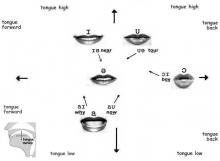With it’s singing, swinging upbeat rhythm and distinctive sound patters, the Geordie accent and dialect owes much of its uniqueness to its preservation of many historical features that have been long since dropped by most other accents of English. It is in fact the most direct continuous evolution of the Anglo-Saxon language that can be found in the British Isles, the dialect still being strongly influenced by the language spoken by Anglo-Saxons who settled in the area in the 5th century. The term “Geordie” is the name often given to the locals in the Newcastle-upon-Tyne area, and although there are quite a few theories as to the origin of the term, a popular one points towards the name ‘George’, as it was such a common name among the local coal miners of the area. It is an accent widely known and recently popularised by celebrities Cheryl Cole (on X Factor) and television presenters Ant and Dec. Famous films featuring the Geordie accent include Billy Elliot and Get Carter. Ever wanted to learn this accent for a role, perhaps for television or a movie? Well firstly you must understand what it sounds like, and then it is best to establish the voice placement.
If you want to learn this challenging accent, try practising the following tips:
• First try to speak simultaneously with the native speakers in the audio recordings, try to keep exactly in pace with them. You will soon start to notice the accent demands a rigid, quite immobile lower jaw and a sensation of horizontally distributed tension in the tongue and hard palate area. This is the ‘placement’ of the accent. To a native Geordie speaker of course this feels natural, but to a learner of the accent you will find you are using muscles in a way that you aren’t used to, which is why you will initially feel tension there.
• /l/ is ‘clear’ in all positions, where as in most other northern accents /l/ is dark (velarised)
• Newcastle/Geordie is non-rhotic, so /r/ is only pronounced before a vowel sound, but not a consonant sound.
• /p, t, k/, the voiceless plosives, are often glottalised when syllable final and sometimes syllable initial before a weak vowel.
• /h/ is not dropped except occasionally in mid-sentence pronouns.
• /j/ is not dropped following alveolar consonants in words such as new, duty, tune, assume
• ‘ing’ is usually pronounced /in/ in words like, ‘thinkin’, ‘drinkin’.
• The vowel sound in “wait, late, tape” is a long simple vowel /e:/ and not a diphthong.
• The vowel sound in “home, only, no” is a long simple vowel /o:/ and not a diphthong.
• There is no opposition between words such as ‘cup’ and ‘put’.
• There is no opposition between words such as ‘cat’ and ‘path’.
• Words like ‘talk’, ‘walk’, ‘what’ and ‘alright’ are literally pronounced as they are written, and have not been changed phonetically as they have in other accents such as Mancunian, RP and London.
• Native speakers of the Newcastle/Geordie accent only pronounce a »word-final ‘r’ if the next word starts with a vowel and occasionally use the intrusive ‘r’.
» Hear examples & compare with other accents Can you pick out the Geordie accent among these examples? click here to try
I will be back with more blogs on accents and their origins in the coming months but if you have one you are particularly interested in hearing about why not email me at
th**********@gm***.com
or via twitter at @thevoicecafe. And finally, if you’d like to follow up any interesting links on Geordie you can try these: Top 10 Geordie movies: http://geordieaccent.com/top-10-geordie-movies/ Top 10 Geordie celebs list: http://www.eurohostels.co.uk/news/can-you-guess-who-made-our-top-ten-geo…




